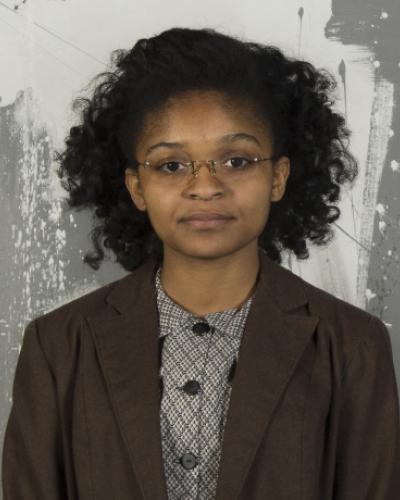All God's Chillun Got Wings isn't a play that's performed very often. Had you read it before you heard about this production?
“No, the first time I read it was right before the audition -- I think the night before -- and it blew my mind. I can’t believe I didn’t know about it.”
What about it blew your mind?
“It’s a simple storyline, I guess, but I was kind of taken aback by the ending or as we got into second act. I was just completely thrown off. I felt like it took such a turn I wasn’t expecting, such drastic character development, at least for the two main characters, primarily for Ella’s character. Especially for the time, I think it was a pretty bold way to end the story and as (director) Godfrey L. Simmons, Jr. says, he thinks Eugene O’Neill meant to end it even bolder, but he didn’t.”
Often in “plays about race” the villains are easy to spot and sometimes a little one-dimensional. In All God’s Chillun Got Wings, you have some of that but really, Ella, is a complicated character and becomes kind of an unexpected villain as the societal pressures begin to consume her. What was your reaction to her character turn?
“You hear a lot of stories about white female frailty and the black men as this beastly being. So, I totally expected the negativity to come from the outside forces and the pressures they would face being an interracial couple at the time. But, I feel like Ella, you still get that sense of fragility and timidness like she doesn’t know what she’s doing but she does. I think the fact that you couldn’t clearly pick out her motives and where this all was coming from (is interesting). I couldn’t tell immediately whether she was doing this purposefully or if she truly was just going crazy.”
One of the reasons this play isn't performed often is because the character of Jim can be kind of problematic with his devotion to Ella and, generally, his putting white people on a pedestal. What is it like to see Jim through your character – who is very proud of her race – and just as an observer today?
“If Hattie is BlackLivesMatter, then Jim would be AllLivesMatter. I think as a person he has a little bit of self-hate going on, definitely. I think he never really addresses it. He talks about school and he talks about his love for Ella and he talks about how their relationship is going but I don’t think we ever hear how Jim is feeling about all these things that Hattie wants to do. He snaps at her about her always talking about race but I feel like there’s so much more there. That little monologue could’ve been much longer, the way he feels about his being black. I think any time it’s brought up he just kind of confronts it and moves on.”
Do you sympathize with Jim at all? There seems to be an element of self-preservation in his desire to not talk about race.
“I definitely sympathize with him. It’s hard to watch. It’s hard to believe that a person can get to that point but then also not really because of the stress that time had to put on him. He and Hattie are both working so hard to become something -- regardless of their race, just as young people. They definitely take their schooling incredibly seriously and he’s failed (the bar) so many times and it’s debatable whether it’s his work ethic or the color of his skin that causes him to fail. … Then on top of that to be in love with this girl who is holding you back and also taunting you and telling you that you’re worthless and that you don’t mean anything. ... There’s definitely a lot going on internally.”
Do you think Jim really loves Ella?
“I do, but not as much as I believe he really wants to love Ella. I believe he loves her because of the first scene as children. So, it's just because he’s a child and still young and naive that I believe that he does love her. But I think he knows he shouldn’t be with her and he holds onto her in hopes that she as Ella and as this white woman will love him and see him as equal.”
What excites you about this production?
“I’m excited for the conversation that this play will spark. I’m incredibly excited to see how people react to the seating because of the director's desire to have the (audience separated by race). I’m very excited to see how that is digested because I’ve never been a part of a show that has done that or has, I feel like they’re breaking the fourth wall but in a much deeper way. Even as actors on stage we’re going to see that visually. One side will be all people of color and the other side will be all white. I’m interested to see as an actor how that will work.”
How do you think people will respond?
“I feel like some people can walk away enlightened and inspired, or just (angry).”





